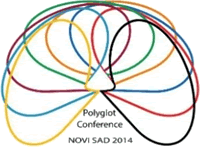Today we have a guest post by Alissa Stern of BASAbali.org
On the eve of the Balinese holy day of knowledge, learning, and wisdom (Saraswati Day), a free innovative multi-media Balinese-Indonesian-English wiki dictionary was just made available to people in Bali and throughout the world.
The wiki uses social media to save Balinese, a language threatened by, among other things, social media.
In recent years, Balinese has dwindled down to use by only about a quarter of native Balinese, the result of globalization, nationalization, and social media taking its usual toll on a minority language. With Balinese, where speakers rely on who they are, who they are speaking to, and what they are speaking about to choose the right level of words, the faceless internet presents a serious problem, encouraging Balinese posters to use the national – and status neutral – Indonesian rather than make a mistake with Balinese.
But with the new Wiki, social media is being use to re-energize Balinese by promoting pride in the language through an international web presence and by providing a tool for anyone with internet access – which these days is large portions of the island – to contribute to its well being and benefit from its information.
Nala Antara, Chair of the Linguist team from Badan Pembina Bahasa Aksara dan Sastra, Universitas Udayana, Universitats Pendidikan Ganesha and other universities within and outside of Bali who will oversee and edit the Wiki explains: “Technology will be our bridge to the future. The wiki Balinese-English-Indonesian dictionary will help everyone in Bali learn and speak Balinese alongside Indonesian, so that we two strong languages co-existing: the language of our people and the language of our nation. The wiki allows the people of Bali to actively take part in this project to take pride in their participation.”
Ayu Mandala from BASAbali which is working to connect the Linguist team with the Balinese public says “with this wiki, we can make the Balinese language well known throughout Bali and throughout the world. Wiki technology gives free access to everyone and provides an opportunity for the public to be part of the action.”
A small firm called TinyMighty, based in a remote part of Spain, which also has a threatened language, created the wiki interface. It is being supported by a Kickstarter campaign, using the same crowdsourcing for funding as the wiki uses crowdsourcing for knowledge. The wiki is particularly unique in being able to handle the different registers of Balinese – something unique to the Balinese language – but it also gives real life examples of word usage from Balinese literature, newspapers and other media, and handle the old – the endangered Balinese script – and the new – youtube videos of native speakers.
Alissa Stern of BASAbali“>BASAbali hopes that the Wiki will not only inspire people to learn and use Balinese, but that Balinese can be a model how other threatened languages in the rest of the world might benefit from a collaboration of expert linguists and the general public.
